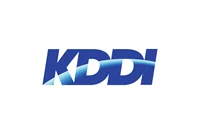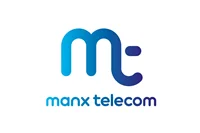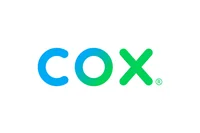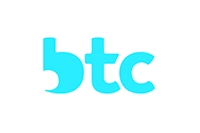Cerillion CCS is based on the industry standard 3rd Generation Partnership Project (3GPP) charging specifications, providing unified online and offline charging through a single high-performance convergent charging engine. CCS supports the new REST-based Nchf interface for 5G charging, whilst maintaining support for legacy and hybrid network deployments using Diameter and SS7/CAMEL where required. In addition, Cerillion Mediator Plus is offered as an optional extension to the CCS, providing additional mediation, session and policy management features as part of an integrated solution.
Cerillion Convergent Charging System (CCS) is a 3GPP compliant convergent charging and policy management system for online and offline services.
As the industry moves towards widespread deployment of 4G and 5G networks, a fundamental change is required in the back office systems in order to support the next wave of telecoms services. With a 5G charging function (CHF), operators can unlock new revenue streams and eliminate the traditional customer segmentation based on prepaid and postpaid payment methods. In addition, increased competition across all markets is driving the need for more personalised services – customers now expect enhanced spending controls and greater pricing transparency, which are essential for creating a compelling customer experience and increasing customer lifetime value.
Convergent Charging System (CCS) delivers the next generation of convergent services, enabling monetisation of new network capabilities such as network slicing using session and event-based charging. Built around the 3GPP charging specifications, the system supports multiple monetary and non-monetary balances, which can be shared within a hierarchical structure or between unrelated services. Cerillion CCS allows operators to perform real-time authorisation, accounting and policy control during service delivery, with Nchf (JSON/HTTP2), Diameter and SS7/CAMEL interfaces for integration with the network and upstream application platforms.

Key Benefits of Cerillion Convergent Charging System
3GPP compliant charging
Built from the ground up based on the industry standard 3rd Generation Partnership Project (3GPP) charging specifications, ensuring compatibility with 5G charging function (CHF) requirements.
Create new revenue streams
Monetise your network assets and create value in new content / OTT service partnerships.
Payment method independence
Break down the traditional barriers between 'prepaid' and 'postpaid' services with a single charging function for all customers and services.
Customer spending controls
Avoid ‘bill shock’ with advanced convergent charging features such as fully transparent pricing, real-time balance management and customer-defined 'spending controls’.

Build customer loyalty
Allow customers to share service bundles with friends, family or business colleagues.

Flexible deployment options
Implement as a best-of-breed convergent charging engine, either to replace legacy network prepaid platforms or as part of an end-to-end BSS transformation.
Key Features of Cerillion Convergent Charging System
Standards-based platform
Charging Function (CHF)
The CHF interacts with the Rating Function (RF) and Account Balance Management Function (ABMF) in order to authorise or deny service, or to send an instruction for the alert, automatic balance top-up or enforced termination of the currently active service. With dynamic balance reservation, the number of units can be tailored based on service type and usage, optimising performance and increasing scalability for high-bandwidth services.
Account Balance Management (ABMF)
The Account Balance Management Function (ABMF) stores and maintains the credit, debit and reserve balance data for an account. This data is central to the real-time credit control mechanism. The ABMF enables monetary and non-monetary balances to be defined, and an account can have more than one balance associated with it. For example, this could include minutes, loyalty points, free text allowances or gift vouchers. A balance instance can also be shared between multiple directly associated services through a hierarchical structure, or between unrelated services not within a hierarchy.
The ABMF supports operator defined policies for applications such as balance notifications, auto top-ups, overdrafts and service denials, as well as customer-defined policies such as spending control preferences.
Rating Function (RF)
Cerillion CCS provides a high performance and low latency Rating Function (RF) which applies charging based on specific usage or event content and rules. The RF can determine the value of chargeable events or network resource usage based on a wide variety of criteria including subscriber, network slice, origin, destination and balances information. In addition, the RF allows for policy and charging rules to be included in the rating decision making logic, thus further increasing the flexibility within the system to meet a rapidly changing environment.
The Rating Function enables online and offline rating based on exactly the same tariff structure. Due to the flexible architecture, it is also possible to deploy the online and offline instances on separate hardware. This allows optimisation of the high availability online platforms separate from the offline environment.
Charging Gateway Function (CGF)
The Charging Gateway Function (CGF) delivers the required Ga interface to support receipt and onward processing of CDRs via the Bo interface to a downstream billing system (such as Cerillion Revenue Manager). It provides the functions to mediate the CDR from its native form into a standard CDR format for distribution to the Billing Domain, whether or not the CDR needs to be applied to an existing Account Balance within the CCS.
Real-time Discounts
CCS provides support for real-time discounts to be applied based on promotional top-ups and balance eligibility rules. These promotions grant discounts to qualifying usage determined by configurable eligibility criteria such as specific usage types, destinations or ad-hoc account groupings within a set qualifying period. Furthermore, cross-balance discounts can be offered whereby usage of one balance may invoke a promotional discount or credit on another balance.
Promotions Engine
CCS includes a powerful promotions engine that helps CSPs to increase revenue through dynamic promotional campaigns based on a wide range of customer behaviours and preferences, such as frequent top-ups, consistent monthly spending and usage patterns, following an "if this then that" pattern. It supports a broad array of campaign triggers from across our BSS/OSS suite and delivers both monetary and non-monetary rewards – for example, prepaid credit or bonus data – in real-time.
CCS Dashboard
The CCS Dashboard is an integrated tool for monitoring and managing all CCS nodes, processes and databases. It provides a graphical representation of the real-time system performance, highlighting key performance metrics including throughput, latency and error rates. With in-app notifications and configurable email alerts, it ensures you’re promptly informed when performance thresholds are exceeded.
Carrier-grade performance & high availability
Cerillion CCS has been built to support the carrier-grade operation expected of modern 4G and 5G network architectures, supporting 250+ Transactions per second (TPS) per node, with 95% of online requests achieving a response time of <50 milliseconds.
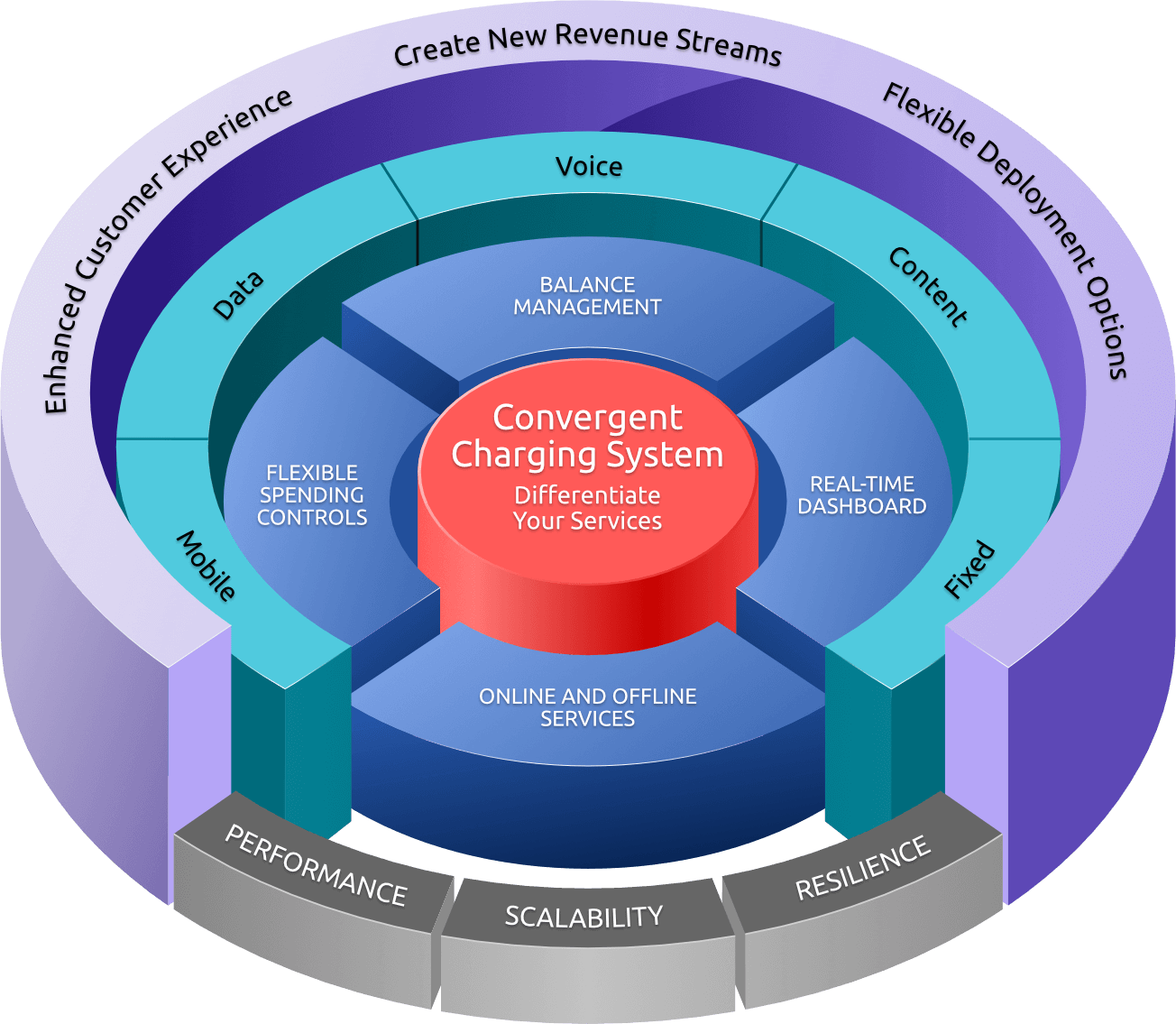
Trusted by leading CSPs worldwide
Cerillion CCS - success stories
Discover our product suite
Our pre-integrated BSS/OSS suite is available for modular and end-to-end solution delivery







